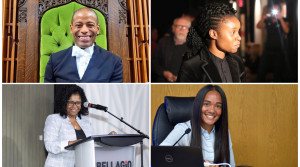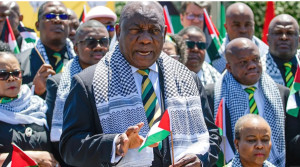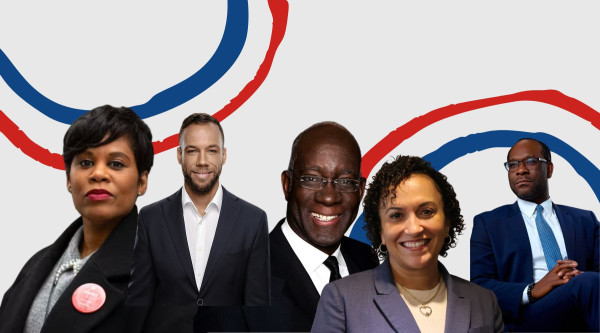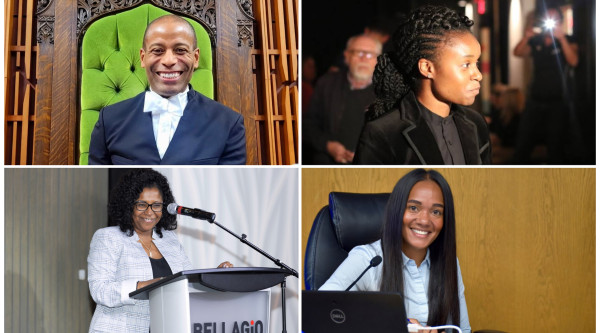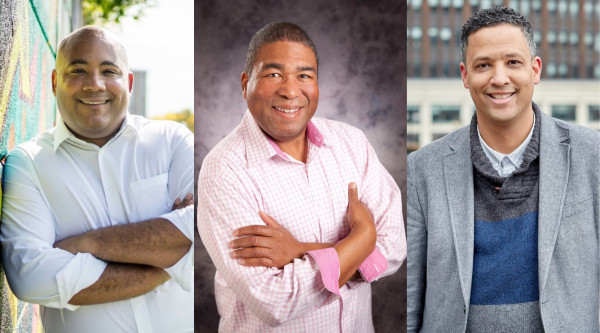Geographically, they represent communities as close to home as the Scarborough ward that I grew up in, to as far away as Halifax and Coquitlam. While Amber Morley and Jamie Moses have the rare honour of representing communities in the cities where they were raised. Emmanuel Dubourg, Trish Mandewo, Iona Stoddard and Michael Thompson became leaders in communities thousands of kilometres from where they were born in Haiti, Zimbabwe and Jamaica. Thompson and Morley are both Toronto city councillors but it’s fair to say they sit on opposite ends of the political spectrum.
That’s a beautiful thing, according to Greg Fergus. The Liberal MP for Hull-Aylmer said he wants Black Canadians to be represented in every political party and at all levels of government so they can “respond to the full spectrum of needs for the Black community.”
“We have a big and diverse community, the more we can bring that out, the more we can do. It helps us tell our story but it also helps other people see that we're not a monolithic group. And with that understanding, I hope there's respect and seeing Black Canadians as equals.”
Interviews were conducted separately and have been slightly edited for length and clarity.
I'm curious about your reaction to the fallout between Sarah Jama, the NDP, and the Conservative Party. And I put that in the context of not so much about the war but the fact that this is a Black female politician in Ontario, when there's only a few?
Amber Morley, Deputy Mayor of Toronto, City Councillor for Etobicoke-Lakeshore since 2022
I was disappointed, of course, to see how that all came to pass. Jill Andrews had a really good statement on exactly what I think the perspective and impact is of that particular situation on racialized women, specifically those of us who are in elected office or seeking elected office. I very much share those sentiments about, when we as progressive politicians or progressive parties, whatever stripe that is, if we claim a stake in an area, whether it's equity, whether it's women's issues, whatever, we’ve got to walk the talk, and I don't think that that took place, as it related to Sarah and the lack of protection or support and solidarity that she was able to receive.
Because you were connected with some communities and groups in an advocacy capacity before going into politics, I'm curious about the relationships and conversations that you've had about some of those tense, contentious issues that the Black community has brought to City Council.
In 2016 or 2017, I remember being a staffer for a city councillor and I had friends who were organizing around the list of demands that Black Lives Matter TO had for Toronto Police. There was a huge situation, and people were just requesting dignity, information and transparency, and I remember feeling conflicted between the organizer, advocate and just the person in me, versus the staffer.
And I remember hearing that the peaceful protests that were happening were getting zero attention from the media. It was about 10 days in and the protests were escalating, as they do, because we're trying to get our message across, we're trying to get a reaction and some commitments. But the news media went with this typical narrative of, “Look at these disruptors, the police had to get them out of there,” and there was no balanced conversation about why were they there and what were they asking for?
I remember feeling dejected as someone who was working to contribute to the goals of City Hall and local government and wanting to see relationships improve. Having a chance to have our voices or our experiences to be recognized and acknowledged, to see the general attitude of people in positions of power, the dismissiveness with which they approached these issues and the perpetuation of the media narrative was painful for me to experience.
I was struggling with my mental health and understanding “Why am I so upset? Why am I leaving work crying every day, why is this so heavy?” And I seemed to be the only one whom it was heavy for, the rest of my colleagues weren’t taking these things home, and of course, they don't have the same experiences, as many of us people of colour. That was one of the things that spurred me to run for office the first time and gave me the courage and the confidence to say, “You know what, you guys don't get it and that's okay but you're not going to continue to dismiss and diminish the experiences of me and my community with a smile. We're not doing that, it's not acceptable.
The final straw for me was when BLM escalated an action to sit in at Pride and interrupted the parade from going forward; it was civil disruption, the prime minister, the premier, and many city councillors were there.
Then the organizers of Pride signed on to the list of demands to validate the issues and concerns and to reaffirm that support even after the parade. And the reaction from City Hall, and specifically the office that I was working in really disturbed me. The move that was encouraged and supported by other city councillors at the time was to essentially defund Pride.
Again, for me, it was just such a step in the wrong direction. It was an attempt to oppress and diminish and invalidate people's experiences and rights to speak up and that was just something that I could not accept. At the time I was a staffer, I didn't indicate to my boss how to run the office or what to do, I had to take the action that I was given and I had to move it forward and that didn't feel good.
Then we’d have racist people sending emails with “attaboys” and vitriol that I had to [read] as a Black member of staff, without support or understanding what that might do to me or my mental health. Navigating that was really challenging but it was also really motivating. So here I am today as a city councillor and a deputy mayor and I take my responsibilities very seriously. I'm very proud to have the audacity to challenge a system and to work to make it better, which is what I feel is my goal right now.
{https://www.instagram.com/p/CtABv6BJN9m/?hl=en&img_index=1}
One of the things I have been surprised about in these conversations is that there's been a few things that’ve been shared with me that feel hurtful as opposed to the kind of stuff that makes you angry.
For me, the part that gets me angry is when I see the systemic perpetuation of leaving people behind or not validating communities’ experiences. That really boils my blood. But I think that's another thing as Black people, we are all alchemists, we've been able to turn pain into power for generations and it really does give us superpowers. So I try to lean into that as well.
If you were talking to a Black person who’s never gotten involved in the political process, what would you say to them to convince them that there is benefit in getting involved?
We all have the capacity to take action, whether big or small. Whether it's just informing yourself about the candidates in your area, at all levels, and taking the time to go out and vote. We are incredibly blessed, while we have a very imperfect system, we have a system full of opportunity. I think my taking up space as not only a city councillor but being appointed deputy mayor within my first year in office is a really strong example that anything is possible.
We live in a democratic society where we have the freedom and opportunity to see ourselves reflected in policy and not all of our ancestors had that. So, I think it is a responsibility we all need to take very seriously, at the very least get out and vote.
A quote that one of my greatest mentors shared with me early on that rings true to me to this day is a quote by Margaret Mead. She says “Never doubt that a small group of thoughtful, committed citizens can change the world; indeed, it's the only thing that ever has.”
We are in a space right now where the world feels like it is crashing and burning all around us but I know in my heart of hearts and my gut that we can build a better world than the one we're living in. But it takes our action, it will not come just on hopes and wishes. Certainly, send up all the prayers, God's always working, but we need to work alongside our good intentions and desires in order to bring them to fruition and into reality. We all have the power to make positive change, whether big or small; that's my big message for people, it's always a good time to get involved and take action.
What was it like to be in that room and those meetings surrounded by fellow Black politicians?
Jamie Moses, Manitoba NDP MLA for St. Vital since 2019, Minister of Economic Development, Investment and Trade and Natural Resources since 2023
The experience, in a word, was powerful. We see us all from different provinces with different backgrounds, sometimes different political hats and different levels of government but we all share so much. We share some of the same obstacles, we share some of the same common interests in breaking down barriers. We all recognize, and that's one of the things I'm most proud of about the time that we spent there during that conference was that we united on some basic agreements and basic goals that we want to continue to work together on as a group. We recognize that there are systemic barriers that we can work to break down collectively, and that we are committing to moving forward to work to further those interests as a group.
I think the fact that you can get, in this political climate, a roomful of politicians from different backgrounds and different political parties to come up with any agreement in just a couple of days is an acute example, and I think if we can do that as a community, not only will this encourage other Black people to be interested in and get involved in politics but it can encourage other politicians in Canada and across the world to ask how we can be more collaborative in the work that we do.
{https://www.instagram.com/p/C4Ea1MvALeT/?hl=en}
When you think about that representation and the significance of your election victories, what goes through your mind, how do you feel?
I feel very pleased that now I can go and visit schools for Black History Month, tell a little bit about my story and share that accomplishment, and do so in a way that lets young people know that I was born right here. That they're sitting in the same kind of classrooms I sat in and the goals that I've achieved are the same goals that they can achieve.
Part of my job is to make sure that they have the opportunity and a path to do that if they so choose. One thing I chiefly believe is that if someone has the drive and the will, the knowledge and the passion to do something, part of my responsibility as a leader in the community is to find them a way to do it and make sure that they have the footing and the groundwork at base level, like infrastructure and tools, to accomplish that goal. So, if we can break down barriers and allow people to have a fair and straight path, I know that there'll be a generation of Manitobans who will absolutely live up to those lofty goals and oftentimes surpass them.
How does your Blackness show up in your role as a politician?
Trish Mandewo, Coquitlam City Councillor since 2018
It doesn't. But while I’m at the table, I’m very cognizant of the inequalities that are there so I'm always looking out for the voice that might not be represented. So my Blackness shows up in the questions that I ask. But that might not always be the Black person because in B.C., a lot of times it’s not. It could be an Indigenous person, it could be an immigrant because we’ve got so many dimensions of diversity.
Why do you think it's important for there to be more Black representation in politics being involved in the political process?
I'll give you an example, I don't think there’s ever been a Black president of the Association of Municipalities in any province. Why I'm saying that's important is because I'm stepping in as an intersectional woman and because the rural communities worry about being ignored or their issues not being at the forefront. My being there, in my diverse lens, immediately makes me think “I'm gonna make sure nobody's left behind” because I'm coming from that place of being one of the previously marginalized groups, I'm going to look out for everybody.
So the importance of diversity, not only diversity of thought, but the other dimensions of diversity is that everyone is looked after or every question that is supposed to be asked at the governance table gets asked because you've got different people, different experiences, different intersectionalities. That's the beauty of having that diversity in the different people at the different tables.
Also knowing that if you haven't walked in someone's shoes, it's hard for you to see things from their perspective, so it's great to have Indigenous voices at the table, to have Black voices at the table because then the issues that affect those communities are going to surface. If I’m at the council table, I'm going to ask, “If we bring this policy forward, is it going to harm these other people.” And a lot of times when I do that, my council colleagues say, “Oh, I never thought about it that way.”
How would you convince more people, more Black people specifically, to get involved in that process?
When you talk about young people, we need to equip them and to encourage them to not only gain the courage and confidence to sit in the boardroom but when they get there to know what to do to effect change. So for example, when George Floyd died and people were taking to the streets, my mind doesn't say, “Go hold a banner in the street." That's not me. Mine says “What policies can be changed to make sure this doesn't happen again?”
So if I can get young people to know that their voices at the decision table matter, that will be a big win. We need them at the council table, we need them running for politics, we need them in executive positions because organizations have a lot of influence.
We need activists because they bring issues to the forefront that people might not be thinking about. After activists, you need the advocates. Advocates are going to take the issues that the activists brought to the forefront and they're going to take those issues and bring them to other tables that can then start either coming up with solutions or having actions related to that. Behind that you need people saying, “Now I know this problem is there, what am I going to do to get things done or to change the narrative.”
Those are people like me, that you won't see on the street because I'm in the background working hard to make sure that those solutions happen. And we've got people like you in media that are helping connect the pieces and tell the stories of all these things that are happening.
So if people understand that there's room for all of us, that we all don't need to be activists because right now the narrative in our Black communities is, if you're not an activist then you're not with us, then you’re a sell-out or whatever other words that might be used. But no, there's room for all of us in our different leadership styles to really affect change and if we can focus on what we're doing and the impact that we're having and acknowledging each other for everything that we're doing, boy, you will go far.
What did you make of Premier Francois Legault’s comment that anti-Black racism doesn’t exist in Quebec?
Emmanuel Dubourg, Quebec Liberal MNA for Viau, 2007-2013 // Liberal MP for Bourassa since 2013
Well, I don’t agree with that because it isn't true. At the federal level, we said that Canada has that problem [of anti-Black racism], so I can’t understand why in Quebec we [wouldn’t] have that situation. They are doing the kind of politics that I don't agree with because we have a lot of problems like in housing and in jails, because we are facing discrimination at the financial level and in life generally.
I’ve been here more than 50 years so I can tell you from my youngest age to now, that’s been the situation that we saw every day. So, if they don't recognize that, they're not going to make policy [decisions] to solve or to address that situation. So I deplore that. And because we are all Quebecers, we all pay tax and we have that situation so they have to care about that situation too.
Can you tell me about any incidences of racism or microaggressions you've experienced in politics?
When I experience those kinds of situations, I take a step back and try to understand why it's happened. Sometimes even though they said or did something to me directly, in a lot of situations, it was regarding our government because they’re frustrated by the way that we’re doing things. So, we have to understand that the government is big so they need to have someone to point to and say, “It's your fault.” We have to try and educate people especially with social media, you have to explain to them that you can be vocal and express [yourself but] this is not the way it should be. It's not only me in that situation but it's for our community, for safety.
{https://www.instagram.com/p/C33En5IsbMN/?hl=en}
I know that I'm not going to convince someone to like me for example but we can live together and respect one another, But those kinds of situations happen very often, even in my Haitian community. I'm dealing with that too and it's part of our job to talk to those people to educate them, to explain things.
What was it like to attend the meeting back in August?
Michael Thompson, Toronto City Councillor for Scarborough Centre since 2003
It was powerful, it was refreshing, it was certainly educational because you’re getting the perspectives and geographical representation from those who attended the meetings. We were all very engaged and that was for me very gratifying but what I gathered is that everyone there, being Black politicians, was interested in the betterment of society, betterment for all. In recognizing that for Blacks and Indigenous people, it's been a notorious problem, not having a fair opportunity to exercise their input but also in terms of [being] the recipient of any the benefits and things that are needed for them to have a better quality of life, whether it's education, economic opportunities, and so on.
The brilliance of the Black folks that were there in Ottawa was evident. There are a lot of amazingly talented, bright, smart, articulate people in that room. And the thing is, it expressed the fact that, as Blacks, we've always been bright, smart, articulate, interesting, and have great ideas, which validates our being. It’s a situation where we don't have to prove ourselves, we just got to do stuff and make things happen.
You mentioned that when you were the only Black Toronto city councillor there was a weight that came with that. What were some of the thoughts and feelings you had or experiences you had to deal with?
First and foremost, the pressure of the Black public on you as the Black city councillor. It didn't matter that you were not in their ward or riding, it just mattered that you were Black and they saw you and they could reach out. I’d have Blacks from Windsor, from London, Durham region, Mississauga, Markham, wherever.. So, that was a big issue because everyone was looking for you to address their concerns.
You are dealing with matters as it relates to policing in the Black community, services for the Black community, you were just that one person so you get a barrage of requests and information and calls or “we want you to come to speak to our event at our event” or “we want you to provide us with advice.” And you're just that one person who has 24 hours in a day, so you were really spread thin. You also have your own ward issues and matters dealing with constituents, it was very challenging, very difficult. Plus, you don't necessarily have colleagues to collaborate with, who understand the Black experience because that's really important as well.
{https://www.instagram.com/p/C2yARpJJVxK/?hl=en&img_index=1}
How do you deal with microaggressions and incidents of outright racism?
You deal with them every day, my friend. Microaggressions are standard whether it's just people driving or reacting to things. First and foremost, your discomfort or your racist views don't bother me, quite frankly. If you were to assault me or something else, that'd be another matter. I don't give that the attention that people are trying to seek. Any person who will tell you that they haven't seen or experienced racism is perhaps either just blind or not able to understand what it all means. I've experienced all types of it but the fact of the matter is I've experienced it from Black people as well. And people may not describe it as being racist but it is.
I deal with it from a perspective of knowing who I am and knowing what I'm about so their views or their conduct towards me really doesn't register from the sort of perspective that it's dangerous to me. I'm unwilling to allow myself to have their racist attitude impact my being, my daily movement. Now, if someone was doing something to impede me from having access to opportunities and so on, then obviously I'm going to do something about it.
And I’ll tell you this, we work really hard in the City of Toronto, in terms of addressing racism from people and staff because that exists. Over the years I've taken steps to address them, and we've been able to deal with it in a way that gives me great satisfaction in terms of moving people from positions of authority where they otherwise could impede the progress of so many people. And we're able to do it and move things along and structurally address the nature of systemic racism because that's a bigger part of the problem.
For you personally, what were some of the things that you took away from the discussions at the meeting back in August?
Iona Stoddard, Halifax Regional Council Member for District 12 since 2020
It was a nice confirmation that yes, we are all going through it. We've come a long way but there's still a long way to go. The uniting of all of us was a statement and that government would stand up and look our way because we were taking control of an issue that they weren't able to take control of. We talked about housing, about how marginalized people have an even harder time, we talked about food security and medical services.
How does your Blackness show up as a politician?
We asked residents if they knew that there’s never been a Black female counselor in Halifax Regional Municipality's history and I can say that took a lot of people by surprise. They said, “Well, why?” And I said, “I don't know because we've been here for 400 years.” It was an eye-opener for a lot of people. As I went door to door there were little girls and little boys, people of colour, and I looked at the children. And I said in many different ways, “don't let anybody tell you that you can't do something, that you can achieve what you want to achieve in your life. Be a good person and go after your dreams.”
Some of them were really excited to see, they were jumping up and down, I was also getting residents to put up signs if they chose, and some kids were like ”Daddy, let’s get a sign" It was so cute. And I said to some of the older teenagers, I look at myself as if I'm able to win this seat and become the first Black councillor in HRM, and I look at myself as the first but not only that being able to give a leg up to the next one, and will give a hand up to the next one then we'll get to a point where it's no longer first or second or third, you're just there and it's not an anomaly anymore. That's where it needs to go.
{https://www.instagram.com/p/CVMUJflNgqP/?hl=en}
I'm wondering if you can give me any examples of microaggressions or outright racism that you've either experienced personally or witnessed in your, in your time in politics?
Sometimes you can tell by the surprise on their face, that they didn't expect me to be a Black woman. One house I went to had a sign for one of my opponents and I just went to the door because you never know, something I might say might change their mind. I've had some people take down the signs they had and put up mine. So anyway, this particular gentleman said, “Don't you see I have a sign on my lawn?” I said, “yes, and I respect that” then I just gave him a little bit of what I propose to do and he started laughing at me and he said, “Do you really think that you will win against ____?” And not so much what he said but his body language, he was leaning in. So, I could not specifically call that racism but it was definitely a microaggression if you try to intimidate me.
It's hard being a woman campaigning, put on top of that a Black woman, especially when you go to doors that have Black people, sometimes you can feel a little bit of tenseness. I’m not sure if it's because a lot of people don't trust politicians and they may be looking at me as just another politician and not really having their best interests at heart. That was something else I looked at and tried to change my approach. We always have one or two people of your own colour that do not support you and we just have to deal with that and not let it throw you off your game, that's for sure.
I've experienced a few of those situations but not a lot to make me want to stop or quit or go home. I've always had a debrief on it at home with my husband and we just go through some of the things that were challenging, some of the comments, anything like that that might’ve been troublesome. My husband was my campaign manager.
Read part 1 of the series here:
Breaking Barriers And Building Bridges: Insights From Black Canadian Politicians
Read part 2 of the series here:
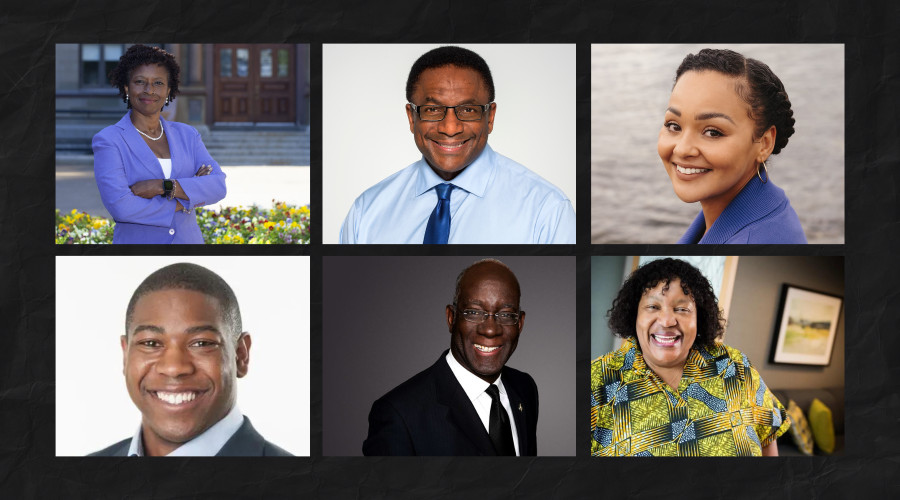
 By
By 




